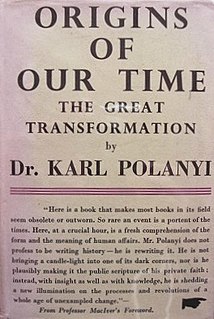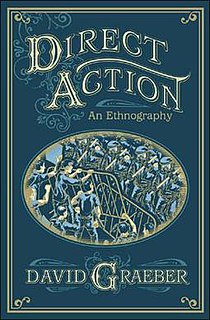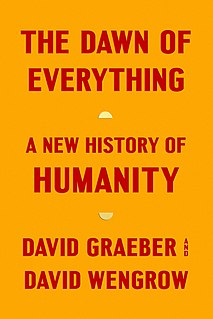
Maximilian Karl Emil Weber was a German sociologist, historian, jurist, and political economist regarded as among the most important theorists of the development of modern Western society. His ideas profoundly influence social theory and research. While Weber did not see himself as a sociologist, he is recognized as one of the fathers of sociology along with Auguste Comte, Karl Marx, and Émile Durkheim.

In the fields of sociology and political science, authority is the legitimate power of a person or group over other people. In a civil state, authority is practiced in ways such a judicial branch or an executive branch of government.

Red tape is an idiom referring to regulations or conformity to formal rules or standards which are claimed to be excessive, rigid or redundant, or to bureaucracy claimed to hinder or prevent action or decision-making. It is usually applied to governments, corporations, and other large organizations. Things often described as "red tape" include filling out paperwork, obtaining licenses, having multiple people or committees approve a decision and various low-level rules that make conducting one's affairs slower, more difficult, or both. Red tape has been found to hamper organizational performance and employee wellbeing by meta-analytic studies in 2020.

David Rolfe Graeber was an American anthropologist and anarchist activist. His influential work in economic anthropology, particularly his books Debt: The First 5,000 Years (2011) and Bullshit Jobs (2018), and his leading role in the Occupy movement, earned him recognition as one of the foremost anthropologists and left-wing thinkers of his time.

The Great Transformation is a book by Karl Polanyi, a Hungarian-American political economist. First published in 1944 by Farrar & Rinehart, it deals with the social and political upheavals that took place in England during the rise of the market economy. Polanyi contends that the modern market economy and the modern nation-state should be understood not as discrete elements but as the single human invention he calls the "Market Society".

Fragments of an Anarchist Anthropology is one of a series of pamphlets published by Prickly Paradigm Press in 2004. With the essay, anthropologist David Graeber attempts to outline areas of research that intellectuals might explore in creating a cohesive body of anarchist social theory.
Ralph P. Hummel was a professor of public administration at the University of Akron and a founding fellow of the Institute of Applied Phenomenology in Science and Technology. He is best known for his book The Bureaucratic Experience.
"Ignore all rules" (IAR) is a policy in the English Wikipedia. It reads: "If a rule prevents you from improving or maintaining Wikipedia, ignore it.". The rule was proposed by Wikipedia co-founder Larry Sanger to encourage editors to add information without focusing excessively on formatting, though Sanger later criticized the rule's effects on the community.
A deep state is a type of governance made up of potentially secret and unauthorised networks of power operating independently of a state's political leadership in pursuit of their own agenda and goals. In popular usage, the term carries overwhelmingly negative connotations. The range of possible uses of the term is similar to that for shadow government. The expression state within a state is an older and similar concept. Historically, it designated a well-defined organization which seeks to function independently, whereas the deep state refers more to a hidden organization seeking to manipulate the public state.

A dystopia is a speculated community or society that is undesirable or frightening. It is often treated as an antonym of utopia, a term that was coined by Sir Thomas More and figures as the title of his best known work, published in 1516, which created a blueprint for an ideal society with minimal crime, violence and poverty. The relationship between utopia and dystopia is in actuality not one simple opposition, as many utopian elements and components are found in dystopias as well, and vice versa.
The term bureaucracy refers to both a body of non-elected governing officials (bureaucrats) and to an administrative policy-making group. Historically, a bureaucracy was a government administration managed by departments staffed with non-elected officials. Today, bureaucracy is the administrative system governing any large institution, whether publicly owned or privately owned. The public administration in many jurisdictions and sub-jurisdictions exemplifies bureaucracy, but so does any centralized hierarchical structure of an institution, e.g. hospitals, academic entities, business firms, professional societies, social clubs, etc.
Bureaucratic drift in American political science is a theory that seeks to explain the tendency for bureaucratic agencies to create policy that deviates from the original mandate. The difference between a bureaucracy's enactment of a law and the legislature's intent is called bureaucratic drift. Legislation is produced by elected officials, but is implemented by unelected bureaucrats, who sometimes act under their own preferences or interests. Bureaucratic drift is often treated as a principal–agent problem, with the House, Senate and Presidency acting as principals and bureaucracy acting as the agent. The government seeks to control bureaucratic drift in a number of ways, most notably congressional oversight and procedural controls.

The Democracy Project: A History, a Crisis, a Movement is anthropologist David Graeber's 2013 book-length, inside account of the Occupy Wall Street. Graeber evaluates the beginning of the movement, the source of its efficacy, and the reason for its eventual demise. Interspersed is a history of democracy, both direct and indirect, throughout many different times and places. In contrast to many other evaluations of OWS Graeber takes a distinctly positive tone, advocating both for the value of OWS and its methods of Direct democracy. The book was published by Spiegel & Grau.

Tick-box culture or in U.S. English check-box culture, is described as bureaucratic and external impositions on professional working conditions, which can be found in many organizations around the world. Another related term is the culture of performativity.

Direct Action: An Ethnography is an ethnographic study of the global justice movement written by anthropologist David Graeber and published by AK Press in 2009.

Toward an Anthropological Theory of Value: The False Coin of Our Own Dreams is a 2002 book-length synthesis of cultural, economic, and political theories of value, written by anthropologist David Graeber and published by Palgrave.

Lost People: Magic and the Legacy of Slavery in Madagascar is a 2007 book-length ethnographic study of Betafo, Madagascar written by anthropologist David Graeber and published by the Indiana University Press.

The Dawn of Everything: A New History of Humanity is a 2021 book by anthropologist and anarchist activist David Graeber, and archaeologist David Wengrow. It was first published in the United Kingdom on 19 October 2021 by Allen Lane.
David Graeber was an American anthropologist and social theorist. Unless otherwise noted, all works are authored solely by David Graeber.














